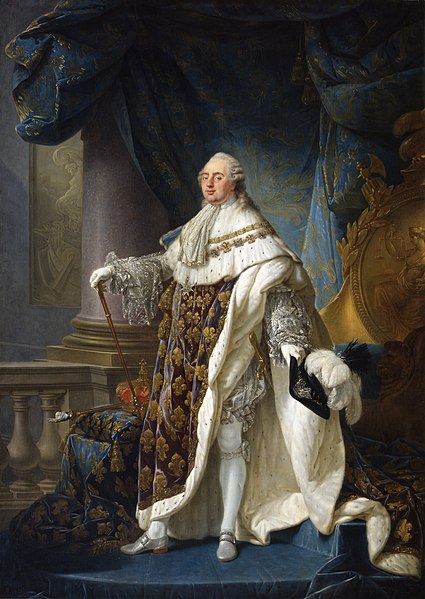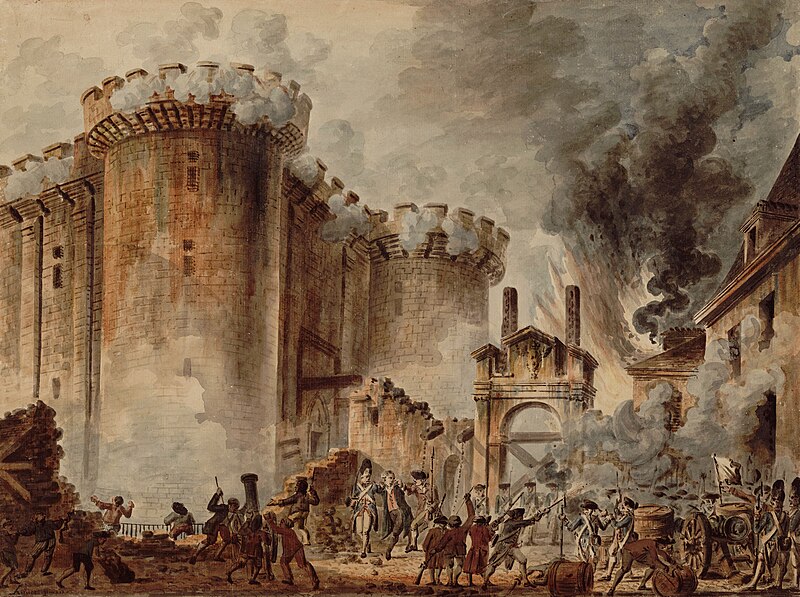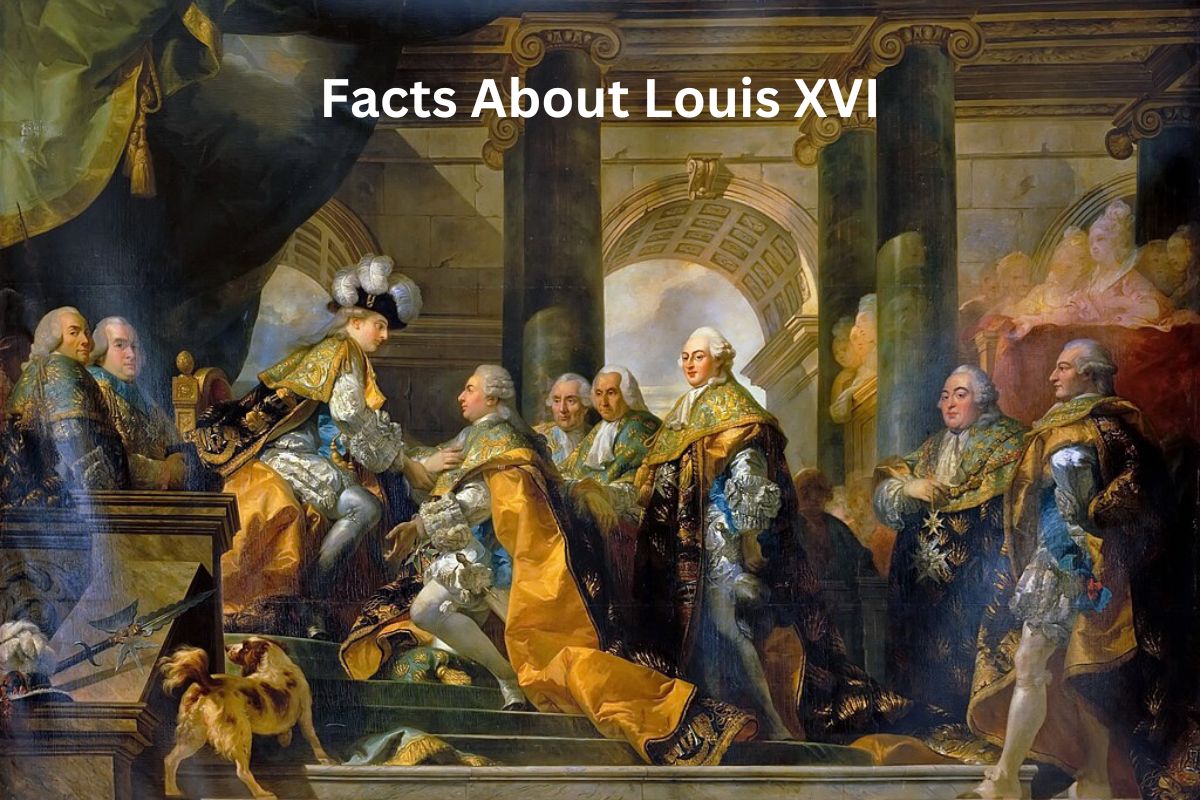Louis XVI, born in 1754, ascended the throne of France in 1774 at a time of economic turmoil and social unrest. His reign would become synonymous with the decline of the French monarchy and the eruption of the French Revolution.
Despite his early promise, Louis XVI’s inability to address pressing financial issues and his perceived indifference to the plight of his people marked the beginning of a tumultuous era.
As the Revolution unfolded, events such as the storming of the Bastille, his attempted escape, and his eventual execution would redefine the course of French history and reverberate across the world.
Louis XVI’s legacy serves as a cautionary tale of the consequences of poor leadership, societal inequality, and the transformative power of revolutionary movements.
Louis XVI Facts
1. Born on August 23, 1754
Louis XVI was born on August 23, 1754, at the Palace of Versailles in France. He was the third son of Louis, Dauphin of France, and Marie-Josèphe of Saxony.
Also Read: French Monarchy Timeline
His birth was met with mixed emotions as he was not initially expected to become king, but the death of his older brothers changed his destiny.

2. Became King of France in 1774
Louis XVI became the King of France in 1774 at the age of 20, following the death of his grandfather, Louis XV. His ascension to the throne was met with both hope and uncertainty.
He was known for his introverted nature and a deep sense of responsibility for the monarchy.
3. Married Marie Antoinette in 1770
Louis XVI’s marriage to Marie Antoinette, an Austrian archduchess, was a political alliance aimed at strengthening ties between France and Austria.
Also Read: Marie Antoinette Facts
The marriage took place on May 16, 1770, when he was still the Dauphin (heir to the throne).
However, their marriage faced initial difficulties due to their young age and cultural differences.
4. Faced financial crisis and outdated tax system
Louis XVI inherited a kingdom burdened by financial difficulties, primarily resulting from the extravagant spending of his predecessors, wars, and an antiquated taxation system. The French economy was strained, and the state’s debt was overwhelming.
Louis faced the challenge of trying to reform the tax system to alleviate the financial strain, but his efforts were met with resistance from the nobility who sought to protect their privileges.
5. Convened Estates-General in 1789, starting French Revolution
In response to the deepening financial crisis and mounting discontent among the population, Louis XVI convened the Estates-General in 1789.
The Estates-General was a representative assembly composed of three estates: the clergy, the nobility, and the common people. This decision was an attempt to find solutions to the economic crisis and to address broader issues related to governance and taxation.
The Estates-General transformed into the National Assembly on June 17, 1789, when the representatives of the Third Estate (common people) declared themselves the legitimate governing body of France.
They were soon joined by some members of the clergy and nobility who sympathized with their cause. This marked a turning point in the French Revolution, as it signaled a shift in power away from the monarchy and toward representative governance.
6. Bastille stormed on July 14, 1789
On July 14, 1789, a pivotal event occurred with the storming of the Bastille, a symbol of royal tyranny and oppression. The Bastille was a medieval fortress-prison in Paris.
The people of Paris, angered by food shortages and political repression, stormed the Bastille, leading to clashes with royal troops. This event is often considered the spark that ignited the French Revolution, symbolizing the struggle against absolute monarchy.

7. Executed by guillotine on January 21, 1793
As tensions escalated, Louis XVI and his family attempted to flee Paris in June 1791. However, they were recognized and apprehended in the town of Varennes and brought back to the capital.
This attempted escape eroded much of the remaining support for the monarchy and strengthened the resolve of those advocating for radical change.
Louis XVI was put on trial, convicted of treason, and sentenced to death. On January 21, 1793, he was executed by guillotine in the Place de la Révolution in Paris.
8. Trial based on treason and conspiracy charges
Louis XVI’s trial was a significant moment in the Revolution. He was accused of conspiring against the liberty of the nation, attempting to escape captivity, and other charges related to his perceived opposition to the reforms brought about by the Revolution.
The trial highlighted the tension between the old monarchical order and the emerging republican ideals of liberty and equality.
9. Monarchy abolished on September 21, 1792
On September 21, 1792, the National Convention, the newly established governing body of revolutionary France, officially abolished the monarchy and declared France a republic.
This marked the end of centuries of Bourbon rule. The execution of Louis XVI and the abolition of the monarchy represented a clear break from the past and a shift toward radical revolutionary goals.
10. Unpopular due to financial problems and indifference
Louis XVI’s reign played a significant role in shaping the course of the French Revolution. His inability to effectively address the financial crisis and his perceived disconnect from the suffering of the common people contributed to his unpopularity.
This, in turn, fueled the radicalization of revolutionary movements, as more moderate factions sought to challenge the monarchy’s power and privilege.

11. Had four children, only one survived
Louis XVI and Marie Antoinette’s marriage faced challenges, and their perceived extravagance during a time of economic hardship further damaged their image.
They had four children, including two sons and two daughters, but only their daughter Marie-Thérèse Charlotte survived into adulthood. Their family life and the vulnerabilities of their children became subjects of public and political discussion during the Revolution.
12. Supported American Revolution financially
Louis XVI’s support for the American Revolution was both financial and strategic. France’s assistance to the American colonies in their fight against the British not only contributed to the success of the American Revolution but also deepened France’s financial crisis.
The funds and resources provided to support the American cause strained the already fragile French economy.
13. Attempted escape in Flight to Varennes, 1791
The Flight to Varennes, the attempted escape of Louis XVI and his family in 1791, was a pivotal moment that accelerated the radicalization of the Revolution.
The attempt demonstrated the growing divide between the monarchy and the revolutionary forces. The king’s capture and return to Paris marked a turning point, as it became clear that the monarchy’s ability to rule was severely compromised.
14. Remembered as the last Bourbon king
Louis XVI’s legacy is that of a king whose reign witnessed the decline and fall of the French monarchy. His inability to navigate the challenges of his time, whether due to personal limitations, political pressures, or historical circumstances, contributed to the erosion of the monarchical system that had defined France for centuries.
15. Symbol of political incompetence and downfall of monarchy
His fate, marked by his execution, serves as a cautionary tale of the dangers of ineffectual leadership, economic mismanagement, and the consequences of social inequality. Louis XVI’s downfall, along with the broader events of the French Revolution, had far-reaching effects on the trajectory of global politics and the development of modern ideas about governance, equality, and human rights.
